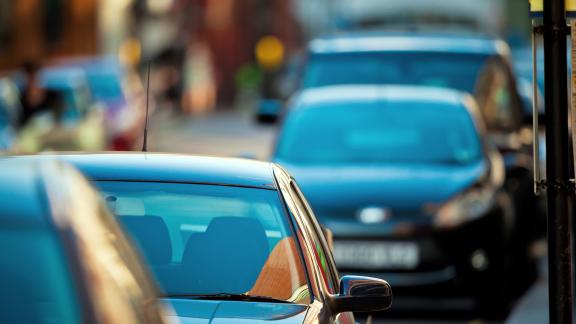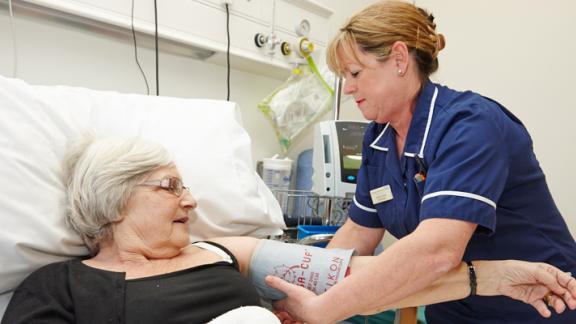Travel and tax FAQs during COVID-19 [Withdrawn]

The following DHSC guidance was withdrawn on 7 July 2022 and is now archived.
1. Are staff eligible for travel expenses when they move base on a temporary basis?
Yes. Agenda for Change (AfC) staff who use their vehicle for business purposes and accrue excess miles as a result of a temporary change in base, reimbursement should be made in line with paragraph 17.17 (section 17) of the NHS terms and conditions of service (TCS) handbook:
- Paragraph 17.17 of the NHS terms and conditions of service handbook states:
when a claim for excess mileage is made in situations where there is a compulsory change of base, either permanent or temporary, resulting in extra daily travelling expenses. The period of payment will be for local partnerships to determine, subject to a maximum period of four years from the date of transfer. (For those employees using public transport see paragraph 17.25)
For medical and dental staff, the travel expenses provisions are in their terms and conditions.
2. Which staff groups will be impacted by the temporary suspension of clawback arrangements?
Staff who have left under the following schemes, who now wish to return to the NHS during the COVID-19 emergency, will benefit from the temporary suspension of clawback arrangements:
- mutually agreed resignation scheme (MARS) – applies to all staff
- voluntary redundancy scheme – applies to all staff
- compulsory redundancy – applies to very senior managers (VSM) staff only
3. Can you confirm if the pause of clawback arrangements under the MARS, VSM and voluntary redundancy schemes is indefinite or temporary?
The suspension of clawback arrangements has been deferred for the duration of the pandemic. On cessation, the clawback arrangements will resume.
- Scenario 1:
A VSM who took voluntary redundancy on 31 December 2019 would have a clawback period of 12 months. From the 1 March 2020 they return for seven months. If the emergency ends on the 30 September, then the clawback rules would resume. If the individual choses to continue working in the NHS they would have three months remaining of the clawback period for which they would be liable to repay part of their severance payment.
- Scenario 2:
An AHP leaves the NHS on a MARS agreement where the six months clawback rule applies. They leave their trust on 31 January 2020. On 1 April 2020 they return to the NHS to help with the emergency and secure a role with a fixed-term contract.
If the emergency ends before the six-month clawback period expires (31 July 2020), and the individual chooses to continue to work in the NHS beyond this point, they would then be liable to repay the remaining part of their six-month clawback period. If the emergency ends after the six-month clawback period, then there will be no further requirement for a clawback payment.
It is important to retain a record of relevant dates and pay rates where clawback would normally have been applied.
4. Some of our staff are struggling to get to work due to reduced public transport, what can employers do to support them?
Employing organisations may wish to consider alternative transport arrangements during the course of the COVID-19 pandemic, in acknowledgment that public transport is running reduced schedules. This may include the provision of paid taxis for staff or organisations choosing to run their own staff transport service. It would be for local organisations to determine what tax implications there may be with any approaches taken.
NEW 11 SEPTEMBER
Tax
General COVID-19 tax and expenses guidance – updated September 2020
In addition to the above normal rules, HMRC has published guidance that provides further information about certain expenses incurred as a result of the COVID-19 pandemic.
HMRC have advised that employers are permitted to pay the tax and national insurance contributions for any COVID-19 related benefit or expense. The rules on PAYE settlement agreements have been relaxed in order to facilitate this and this temporary relaxation will be kept under review. Further information can be found on the GOV.UK website.
Returners and unpaid volunteers
HMRC has also provided guidance on tax arrangements for those returning to work in the NHS, and for local authorities and NHS trusts on supervising unpaid volunteers. For NHS staff choosing to take on additional work to help with the response to the COVID-19 outbreak, HMRC has worked with tax agents and employers who organise tax arrangements on behalf of employees, about ensuring they put people on to the correct tax code.
If any of the above is unclear, please get in touch with your trust’s usual HMRC contact.
Tax FAQs
1. Will the suspension of charges for NHS staff car parking be considered as a benefit in kind and therefore have personal tax implications?
There is no tax charge on the provision of a parking space at, or near a place of work. ‘At or near’ is not defined in the legislation but generally this is not applied rigidly by HMRC when considering this rule.
2. If we provide hotel accommodation to our staff moving out of home due to COVID-19 how can we make sure they are not affected by personal tax implications?
Where you provide accommodation for staff this is considered a taxable benefit. If the individual either continues to work at their permanent workplace; or changes their workplace with no significant impact on their journey or cost of travel.
Employers are able to mitigate this by paying the tax and national insurance contributions incurred (see above).
3. What are the tax implications if we provide staff with nursery places?
Where this is provided by a third party provider (i.e. staff are being reimbursed for their normal nursery places) then this would be a taxable benefit. Employers are able to mitigate this by paying the tax and national insurance incurred.
Where the childcare is provided by the employer (or the employer makes premises available in conjunction with another employer) there is no tax charge providing:
- the provision is available to all employees
- the child meets the age eligibility criteria – up until 1 September following the child’s 15th birthday or where a child has a disability as defined for these purposes (eim21902), up until 1 September following their 16th birthday
- it is not a private dwelling
- the registration requirements under the Children’s Act 2003 have been met.
4. What are the tax implications if we provide staff with free meals?
There is no tax charge as long as the following conditions are met:
- the meal is provided in a staff canteen or on the employer’s premises
- the meal is of a reasonable scale
- all employees at that location can obtain a free or subsidised meal
- if the meal is provided in a canteen or a restaurant where meals are provided to the public, part of the canteen/restaurant must be designated for staff use only.
Redeployment
1. We have a staff member who is uncomfortable with being redeployed to a different work area. As an employer, what are our options?
Where staff do not feel able to be redeployed to a different work area, employers should seek to understand the reasons and explore all options available with the individual. Employers are encouraged to use maximum flexibility to ensure the needs of both staff and the service are maintained. Where working from home is not possible, employers will need to exercise their discretion and use the flexibilities they already have to support staff during this period.



